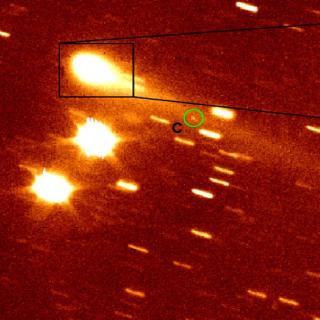Bibcode
Adams, J. H.; Ahmad, S.; Albert, J.-N.; Allard, D.; Anchordoqui, L.; Andreev, V.; Anzalone, A.; Arai, Y.; Asano, K.; Ave Pernas, M.; Baragatti, P.; Barrillon, P.; Batsch, T.; Bayer, J.; Bechini, R.; Belenguer, T.; Bellotti, R.; Belov, K.; Berlind, A. A.; Bertaina, M.; Biermann, P. L.; Biktemerova, S.; Blaksley, C.; Blanc, N.; Błȩcki, J.; Blin-Bondil, S.; Blümer, J.; Bobik, P.; Bogomilov, M.; Bonamente, M.; Briggs, M. S.; Briz, S.; Bruno, A.; Cafagna, F.; Campana, D.; Capdevielle, J.-N.; Caruso, R.; Casolino, M.; Cassardo, C.; Castellinic, G.; Catalano, C.; Catalano, G.; Cellino, A.; Chikawa, M.; Christl, M. J.; Cline, D.; Connaughton, V.; Conti, L.; Cordero, G.; Crawford, H. J.; Cremonini, R.; Csorna, S.; Dagoret-Campagne, S.; de Castro, A. J.; De Donato, C.; de la Taille, C.; De Santis, C.; del Peral, L.; Dell'Oro, A.; De Simone, N.; Di Martino, M.; Distratis, G.; Dulucq, F.; Dupieux, M.; Ebersoldt, A.; Ebisuzaki, T.; Engel, R.; Falk, S.; Fang, K.; Fenu, F.; Fernández-Gómez, I.; Ferrarese, S.; Finco, D.; Flamini, M.; Fornaro, C.; Franceschi, A.; Fujimoto, J.; Fukushima, M.; Galeotti, P.; Garipov, G.; Geary, J.; Gelmini, G.; Giraudo, G.; Gonchar, M.; González Alvarado, C.; Gorodetzky, P.; Guarino, F.; Guzmán, A.; Hachisu, Y.; Harlov, B.; Haungs, A.; Hernández Carretero, J.; Higashide, K.; Ikeda, D.; Ikeda, H.; Inoue, N.; Inoue, S.; Insolia, A.; Isgrò, F.; Itow, Y. et al.
Bibliographical reference
Experimental Astronomy, Volume 40, Issue 1, pp.135-152
Advertised on:
11
2015
Journal
Citations
10
Refereed citations
9
Description
The JEM-EUSO (Extreme Universe Space Observatory on-board the Japanese
Experiment Module) mission will conduct extensive air shower (EAS)
observations on the International Space Station (ISS). Following the ISS
orbit, JEM-EUSO will experience continuous changes in the atmospheric
conditions, including cloud presence. The influence of clouds on
space-based observation is, therefore, an important topic to investigate
from both EAS property and cloud climatology points of view. In the
present work, the impact of clouds on the apparent profile of EAS is
demonstrated through the simulation studies, taking into account the
JEM-EUSO instrument and properties of the clouds. These results show a
dependence on the cloud-top altitude and optical depth of the cloud. The
analyses of satellite measurements on the cloud distribution indicate
that more than 60 % of the cases allow for conventional EAS observation,
and an additional ˜20 % with reduced quality. The combination of
the relevant factors results in an effective trigger aperture of EAS
observation ˜72 %, compared to the one in the clear atmosphere
condition.
Related projects

Minor Bodies of the Solar System
This project studies the physical and compositional properties of the so-called minor bodies of the Solar System, that includes asteroids, icy objects, and comets. Of special interest are the trans-neptunian objects (TNOs), including those considered the most distant objects detected so far (Extreme-TNOs or ETNOs); the comets and the comet-asteroid
Julia de
León Cruz